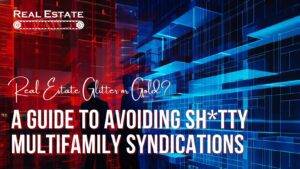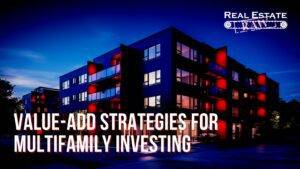In the multifamily real estate business, the adage holds true: money is made when the value of a property is known, and it can be lost when the value is unknown. The pivotal question is: who holds the power to make or lose money in this game? Is it the buyer or the seller? Let’s look at these questions from two points of view. The Seller and the Buyer.
The Buyers Perspective:
When it comes to making money in multifamily, it all begins with buying the deal right. The buyer who can identify undervalued properties with the potential for growth and increased income (value add). A buyer must know all aspects of their market to make this happen. Through market research the buyer must be able to identify assets that are selling for less than their true market value. The buyer cannot pay the seller the real value of the asset or they won’t make money themselves.
The buyer may be able to identify areas of operation that can be improved on. By increasing rental income, reducing expenses, and improving tenant satisfaction, buyers can increase the net operating income (NOI), resulting in increased cash flow and appreciation. This is what I call “valuation through operation, not renovation”.
Win-win? Maybe.
The seller’s Perspective:
You make money if you don’t have to sell. If you DO have to sell… then it depends on the market at that moment. The key is to avoid becoming a “motivated” seller.
If you, the seller, can choose the time and terms of your sale, you are greatly increasing the probability of making money. The three main reasons I have seen that drive people to sell are-
1. Maturity Exposure
This is when the loan comes due, and the loan balance must be paid off in short order (balloon note) Shorter term loans have higher maturity exposure risk than longer term loans with fixed rates.
2. CapEx
Capital expenses (CapEx) that the owner cannot fund is a common reason for a motivated sale. CapEx is usually a large expense item that must be fixed now or in the near future. This can be things like replacing the plumbing, wiring or roofs in an aging building and can be very expensive. To avoid this, conduct proper due diligence on the building and price the asset accordingly.
3. Partnerships
Sometimes people just stop getting along. Nothing to explain there. Sell and part ways.
Selling an asset is more likely to be a win-win situation in your favor if you are not overly motivated to sell.
Conclusion-
In my 19 years of experience in the multifamily business I don’t ever remember a time when all the sellers got together and said, “let’s all sell our real estate real cheap, so Bill and all his friends can buy it and go make a lot of money”.
I also don’t remember a time when all the buyers go together and said, “Let’s all pay way too much for real estate because we love sellers and want them all to get rich on the deals, they sell us”.
My point is that we are all here to make money in real estate and that’s the first concept that needs to be acknowledged. Real estate does not have to be a win-lose scenario, but it may not always be a huge win-win for both sides either. That’s OK!
If you are the seller- try not to be motivated and you will likely shift some of the “win” to your side. If you are a motivated buyer… well, then you are likely to become a motivated seller one day.
Whether you are a buyer or seller, it all begins with the purchase. Not knowing the real value of your deal is likely to cost you money, now or in the future. Buy it right and you will sell it right. Deal analysis is everything!
To learn more about deal analysis and other real estate topics check out www.realestateraw.com
Join my Facebook group Real Estate Raw for Multifamily Investors.


































